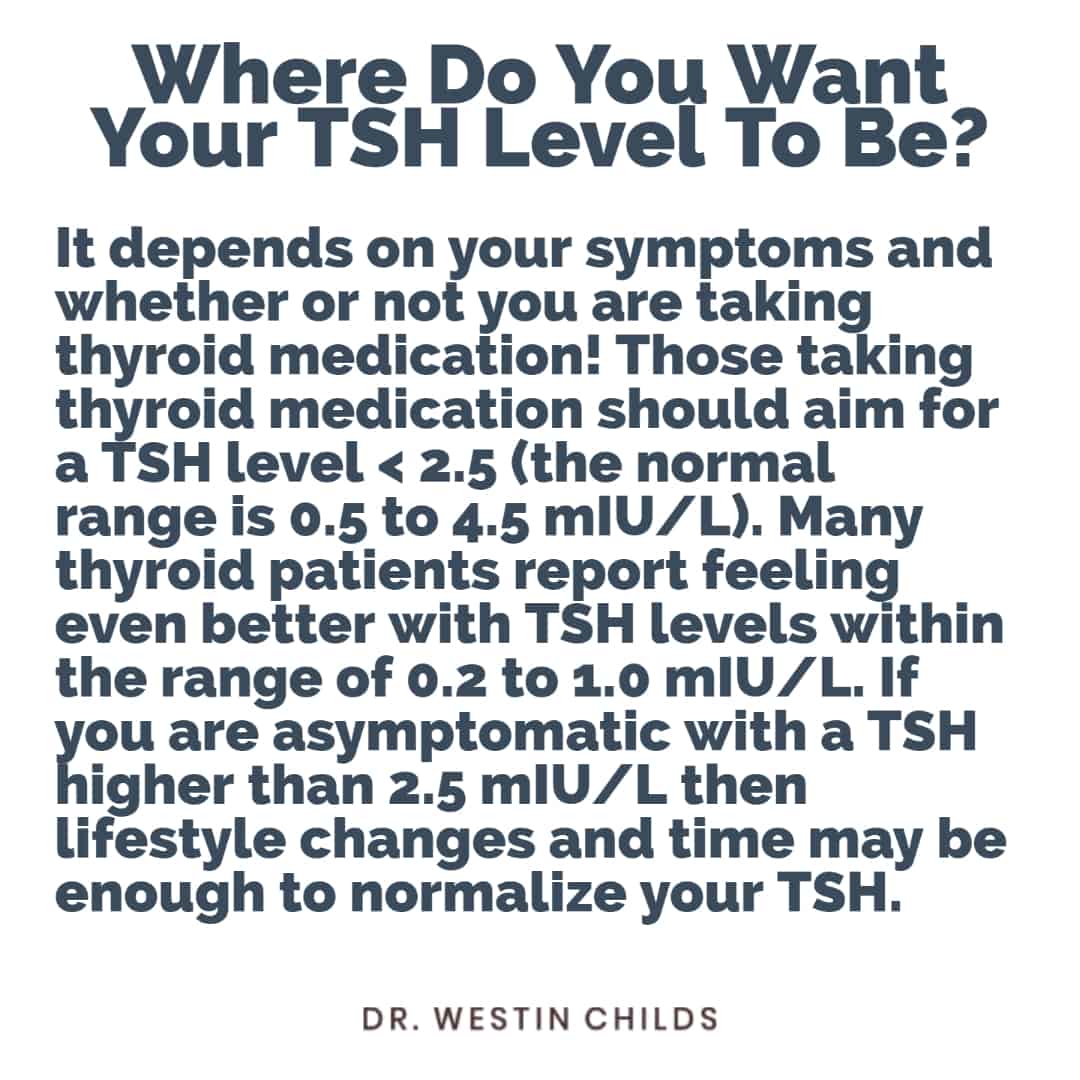

You just got back from a visit to your doctor after being told that your thyroid is completely “normal”.
But now you are trying to square how you can feel so poorly and have all of the symptoms of low thyroid but still have a “normal” thyroid?
Did I get close?
If so, you aren’t alone!
Patients, in general, have had similar struggles over the past several decades when trying to evaluate their TSH levels.
And that’s exactly what we are going to discuss in this article.
Today you will learn:
DOWNLOAD FREE RESOURCES
Foods to Avoid if you Have Thyroid Problems:
I’ve found that these 10 foods cause the most problems for thyroid patients. Learn which foods you should avoid if you have thyroid disease of any type.
DOWNLOAD NOWThe Complete List of Thyroid Lab tests:
The list includes optimal ranges, normal ranges, and the complete list of tests you need to diagnose and manage thyroid disease correctly!
DOWNLOAD NOWBefore we talk about what a “normal” TSH level is, let me briefly define what the TSH test is.
The TSH test stands for thyroid stimulating hormone which is a hormone produced in your brain by the pituitary gland.
This hormone, TSH, plays an important role in regulating your thyroid hormone.
TSH is produced by your pituitary gland which then acts directly on your thyroid gland.
So if your TSH level is high, it generally means that your thyroid gland is NOT responding to the signals from your brain which means your thyroid is LOW.
If your TSH level is LOW, it generally means that your thyroid gland is producing TOO much thyroid hormone and your brain tries to adapt by REDUCING TSH levels.
Most people who assess their TSH are doing so because they believe they have LOW thyroid function.
So in these people, we are looking to see if their TSH level is high.
If you are someone who is experiencing symptoms such as weight gain, fatigue, hair loss, cold intolerance, constipation, etc. then you would be looking to see if your TSH level is HIGH as this indicates you have low thyroid function.
It can get a little confusing due to the fact that the TSH and thyroid function tend to be opposite to one another but that’s how it works.

And most people, probably you as well, get their thyroid tested to try and explain, or at least rule out, their thyroid as the cause of their symptoms.
But this is where we run into problems…
There is actually a lot of debate about what a healthy and normal TSH level actually is.
So you could go to 10 different doctors and get completely different answers depending on how educated that doctor is.
This obviously can be confusing to patients because all they want to do is feel better.
But nothing stands in the way more of them feeling better than a doctor who is not up to date with their medical knowledge.
So, back to the original question:
What is a healthy TSH level?
Well, newer studies (1) that have come out show that a healthy TSH level is most likely less than 2.5 uIU/mL.
But this causes another issue…
The healthy levels I am recommending here are NOT reflected on the TSH lab reference ranges that you get on your lab report.
The “reference” range that you get on your lab report is a range of values that is pre-determined by the lab that is testing your blood.
And if your doctor isn’t very educated they may use THIS range to determine whether you are “normal” or not.
This is the last thing that you want them to do because this range differs dramatically from the healthy range that I just listed above.
The standard reference range that most lab companies produce will give you a range of values that is probably close to something like this:

You can see from the image above that the lab reference provided is under the name “REF. RANGE” and is a range of values from 0.350 – 5.500 uIU/mL.
Do you see the problem here?
The range provided is much BROADER than the healthy range that the newer medical studies I referenced above recommend.
These studies suggest that a “healthy” TSH range is probably between 0.350 – 2.500 uIU/mL.
If you are someone who has a TSH level of let’s say 3.5 then you fall within the technically “normal” range but out of the new “healthy” range.
If you fall into this range then it’s very unlikely that you will get the treatment that you need.
Because of this, you MUST understand the concept of the “healthy TSH range” and the “lab TSH reference range”.
The healthy TSH range is anything between 0.35 and 2.5
The lab TSH reference range is much broader and ranges from 0.35 to 5.5
So what lab range should you actually use?
That brings me to my next point…
This may sound a little strange but once I explain what I mean it will make a lot more sense.
Instead of using the standard reference ranges provided by your doctor, I would recommend using the pregnancy TSH reference ranges.
These ranges have been specifically created for women who are pregnant.
And I don’t care if you are a man, or a 70-year-old woman, these ranges are exactly what you want to use.
Pregnancy TSH levels were created because of just how important thyroid function is to the developing fetus (2).
If a developing baby is not able to get enough thyroid hormone then they have a very high risk of developmental problems including the risk of having a low IQ.
And doctors know this.
They want to make sure that ALL pregnant women have ENOUGH thyroid hormone in their bodies to support their developing child.
But you can also take advantage of these reference ranges in your own body.
If the TSH levels provided to pregnant women are safe for women AND for a developing child then they are ALSO safe for you.
If you are in the medical field then you what I mean.

A doctor will NEVER recommend anything that has the smallest chance of causing problems in a pregnant woman.
Doctors even recommend staying away from MOST over-the-counter medications for this very reason.
Again, if this is recommended for a pregnant woman then you can safely assume that the levels provided are not only safe but they are INCREDIBLY safe for the reasons listed above.
So what are these TSH ranges?
They are split into trimesters and you can find the new ranges below:
Notice the difference in these ranges compared to the standard reference ranges provided on your lab tests.
The TSH levels provided above are much more narrow and more closely represent the healthy TSH level that newer studies show we should aim for.
They also allow for slightly lower levels of TSH compared to the lab reference ranges.
The low end of the reference range provided by the lab is 0.35 whereas the low end of the reference range for pregnant women is 0.1 to 0.2.
This gives you a little more leeway both on the top end and on the bottom end of the reference range.
I would recommend that regardless of your age and gender that you use the reference ranges for pregnant women.
This will provide you with a HEALTHIER range for your TSH.
To recap, instead of looking at the standard reference range provided on your lab tests you will want to look at a “healthy” TSH range.
The best way to create this healthy TSH reference range is to use the same ranges that doctors use for pregnant women.
The standard reference range is usually between 0.35 and 5.5.
The healthier range to compare your results to is 0.2 and 2.5.
If your TSH level is LESS than 0.2 then that would indicate that your TSH is abnormal and that you have too much thyroid in your body (a condition known as hyperthyroidism).
If your TSH is HIGHER than 2.5 then that would indicate that your TSH is abnormal and that you have too LITTLE thyroid hormone in your body (a condition known as hypothyroidism).
Again, it’s important for you to understand that your doctor will most likely NOT be aware of these newer healthier ranges that I’ve listed above.
If they are not aware of them, you can educate them by explaining what I’ve explained here which may help get them more up to date with the latest medical research.
You would probably like to think that your doctor is up to date but that just isn’t usually the case.
For this entire article, we’ve been talking about a healthy TSH in the setting of NOT using thyroid medication.
The healthy ranges that I’ve provided above are useful for people who have NO KNOWN diagnosis of thyroid disease.
If you are wondering if your thyroid is normal then you’d want to use those ranges.
But what about people who have KNOWN thyroid disease such as hypothyroidism or Hashimoto’s thyroiditis?
These people need a different set of guidelines due to how thyroid medication impacts TSH.
But if you are someone who falls into this category (meaning you take a thyroid medication such as levothyroxine or Synthroid) then you can still benefit from the tighter guidelines that I’ve mentioned above.
People taking thyroid medication, though, often need even tighter TSH guidelines.
TSH levels between 0.2 and 1.0 tend to be associated with better symptom control, less weight gain, improved hair growth, and better management of low thyroid symptoms in general.
There is much more to managing your TSH if you are taking thyroid medication than just this range, however, and that’s something that I will cover in another blog post.
The TSH is just ONE way to measure how well your thyroid is functioning.
Unfortunately, it’s not the best way to measure thyroid function and there are some nuances required if you want to accurately assess thyroid function in your body.
In order to ensure that your TSH is in the healthy range, I recommend using the same TSH levels that doctors recommend for pregnant women.
These levels are SAFE to use and more closely approximate what a healthy TSH would look like in a regular healthy adult.
Using these tighter reference ranges may help explain why you are feeling the way that you feel and may help diagnose MORE people with thyroid conditions who would otherwise be missed by their doctor.
Now I want to hear from you:
What is your TSH level right now?
What reference range is your doctor currently using to see if your TSH is healthy?
How does your TSH compare to the levels found in pregnant women that I’ve outlined above?
Do you feel like you are getting the treatment you need to feel better?
Leave your questions or comments below!
View All References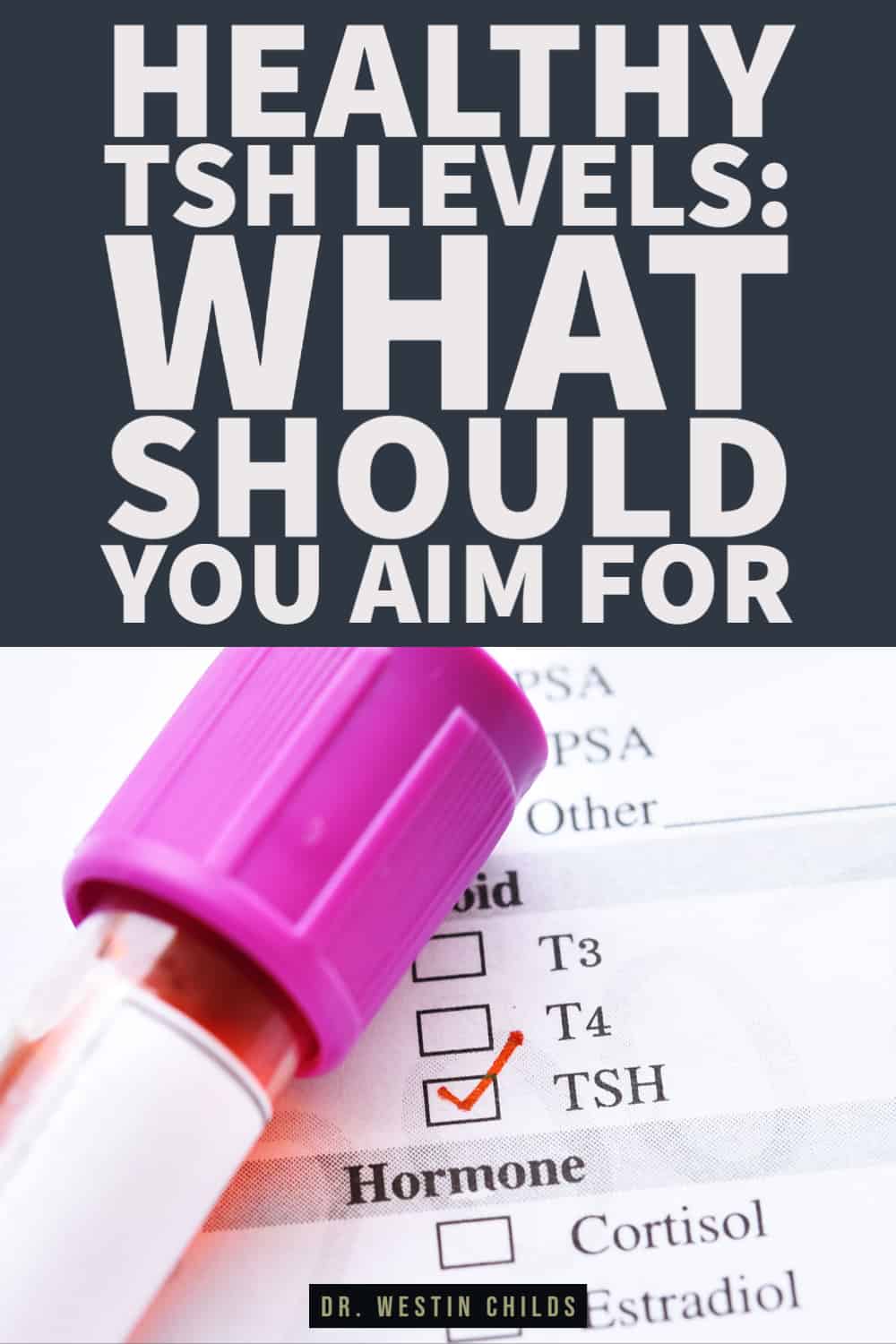
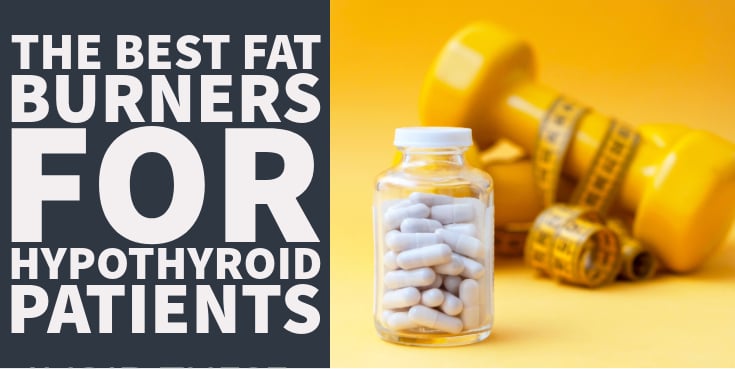
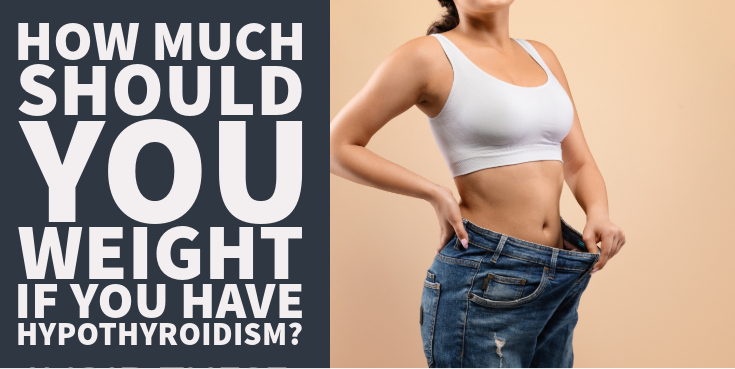
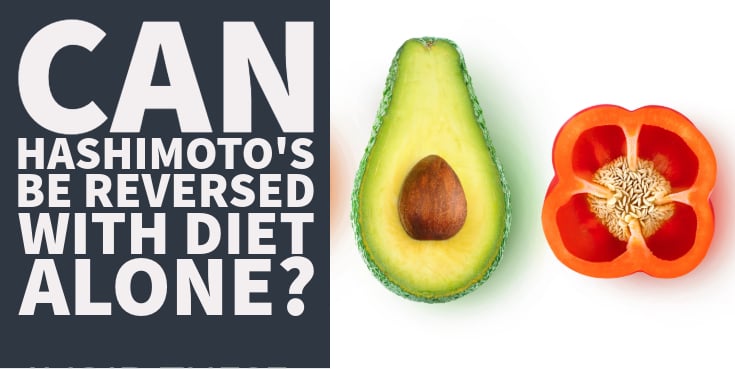
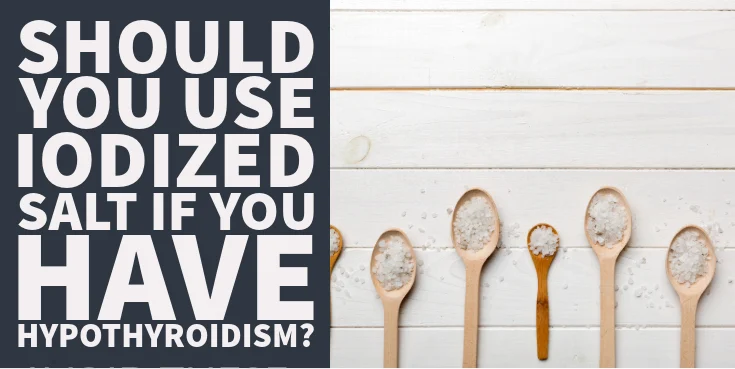

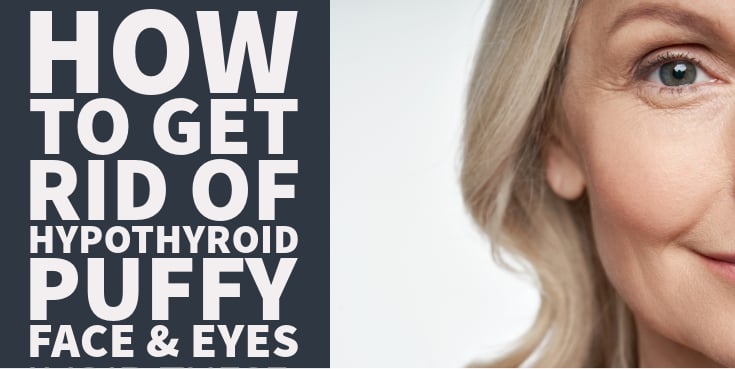

About Dr. Westin Childs
Hey! I'm Westin Childs D.O. (former Osteopathic Physician). I don't practice medicine anymore and instead specialize in helping people like YOU who have thyroid problems, hormone imbalances, and weight loss resistance. I love to write and share what I've learned over the years. I also happen to formulate the best supplements on the market (well, at least in my opinion!) and I'm proud to say that over 80,000+ people have used them over the last 7 years. You can read more about my own personal health journey and why I am so passionate about what I do.
P.S. Here are 4 ways you can get more help right now:
#2. Need better symptom control? Check out my thyroid supplements.
#4. Follow me on Youtube, Facebook, TikTok, and Instagram for up-to-date thyroid tips, tricks, videos, and more.
My TSH is 0.428, I continue to gain weight even tho eat very little. Morning temperature is 95., and I freeze. Doctor lowered Armour 120 to 90 six days a week. Do not feel well Reply
Dr. Westin ChildsHi Diane, It’s possible to have a low TSH but still be hypothyroid, especially if levothyroxine is driving it down. Reply
what if a male age 23 in college has a tsh of 5-7 but free t3 and free t4 on top of normal range…what does that mean? one dr says you are fine yet a nurse somewhere else says take meds. yet i dont want to take anything…i do eat alot of japanese foods w soy sauce once or twice weekly but eat a normal diet otherwise yet dont eat alot of veggies nor get alot of sunlight Reply
Dr. Westin ChildsHi Jake, In my opinion, a TSH that high should be managed either with thyroid medication or with aggressive natural therapies. Reply
My tsh is 0.1 .I’m taking both levo and lio.. now I’m confused.. Reply Dr. Westin Childs Hi Gloria, A non suppressed but low TSH may be okay in many situations. ReplyMy TSH has dropped from .683 to .507 in a years time. Should I be concerned about this downward trend? Reply
Dr. Westin Childs Hi Charles, Not necessarily. Only if that drop is accompanied by unwanted symptoms. ReplyTSH was 3, and I started Levothyroxine two months ago. I was very opposed but my doctor insisted as I’m trying to get pregnant. He said he wants it below 2.
I hate to admit that I feel much better since I started taking Levothyroxine. No more joint pain, fatigue, feeling cold, hair loss… Reply
Hi Bianca, Glad you are feeling better! Your doctor is also correct about pregnancy and TSH levels. It’s VERY hard to get pregnant with even a slightly elevated TSH. Reply
Ann ThielmanMy TSH is 1.31. I have been taking Levo for the past 5 or 6 yrs. I have never felt any better on the meds than I did off the meds and keep wondering if they are doing anything. The drs don’t really listen and just keep using the standard ranges and telling me I’m fine. Reply
Dr. Westin ChildsHi Ann, Unfortunately, that is very common. The best option in that situation is to seek out a second opinion. Reply
Marieta McCuneThe TSH was 1.120 ulU/mL in October when alternating ( made in Germany ) 50 mcg. and 75 mcg. This was PERFECT for me….
BUT…
After switching to 2.5 mcg. of ONLY in December because my Insurance does not cover , my TSH went through the ROOF, reaching 30 ulU/mL in February. I knew that this would NOT end well for me, but I trusted my PCP, who told me I COULD do with just the T3 medication… even though I do not have a Thyroid… . How would you call this? I felt horrible in addition to all my other symptoms of HypoThyroidism and everything else possibly being exposed to mold in our house… I felt like I am losing my mind… honestly. I was waking up every morning with pain in the back of my skull, which was turning into Headaches and Pressure inside of my head that lasted all day long, and I was DIZZY all day long… . He was blaming it on the mold… until we got my blood test back… I don’t know if I would ever forgive him for that…!
I don’t know what the current situation is. I am due for another test.
I am looking at my blood tests results from (Quest Diagnostics) from October and February. It is interesting that in October, they did not reflect any additional notes on their tests but in February, they do have an additional note that gives the Pregnancy Reference Ranges in (mlU/L) instead of (ulU/mL) that corresponds to the TSH test done before February 1 of 2021. Reply
Do you have any evidence – ie a research paper – to support this statement: “TSH levels between 0.2 and 1.0 tend to be associated with better symptom control, less weight gain, improved hair growth, and better management of low thyroid symptoms in general”? My GP refuses to accept anything that I’ve read on the internet unless I can show him some evidence to support it. Reply
Dr. Westin ChildsHi Barbara, The evidence should be linked below in the reference section! You can see all of the articles that I reference in each blog post there. Reply
What is your TSH level right now? 1.28
What reference range is used? .40-4.5
How does your TSH compare to the levels found in pregnant women that I’ve outlined above? It appears that I am in the range. I do not know what my TSH was when I was pregnant but I FELT THE BEST I HAD EVER FELT IN MY LIFE! I took my usual dosage of thyroid while pregnant, It was sort of difficult getting pregnant, I had given up on the idea of it happening, plus marriage was falling apart. It was an unexpected pregnancy. I do not believe feeling great had anything to do with my state of mind, it was something to do with my body responding. After birth it all went away.
Do you feel like you are getting the treatment you need to feel better? No, in my opinion dr is afraid to trust me, he is afraid to step out of his box. I requested free T3 and free T4 labs and can see from results that my body is not responding to current dosage. ( Free T3 = 2.5 and Free T4 = .9).
Sadly, I have had to rely on myself and my own resources. I purchase overseas thyroid medication when possible to supplement the thyroid prescription my dr writes, take OTC supplements to enhance. I read google patents, your blog, others blogs, research doc and experiment on myself. I don’t tell my dr these things. I feel best when my TSH is < .01. It usually is not there. Only time it has tested there is when I stop taking meds and then restart couple months later. I don't know why. Reply
HI DR CHILDS, SO NICE TO MEET YOU.
COULD YOU PLEASE ADDRESS TSH LEVELS FOR THOSE OF US WHO HAVE HAD RAI TREATMENT. MINE HAS BEEN CONSISTENTLY LOW BUT NORMAL T3 & T4. HAD RAI IN 1993 & BEEN ON THE SAME DOSE OF LEVOXYL SINCE 2009. I FEEL GOOD=NO HI OR LOW SYMPTOMS. NEW DOC IN TOWN LOWERED MY DOSAGE. BELIEVES I’M TOO HI CUZ OF THE LOW TSH..NOW I’M EXPERIENCING SYMPTOMS OF BEING UNDERACTIVE. Reply
Hi Dr.
I have a TSH level of 20.5. It’s very high. My T3 and T4 are at the perfect level. I do see a natural Doctor to help me but even she is stumped. I’m on Synthroid along with compounded T3 and a compounded .88 Synthroid. I just started a natural cytozyme Pt/HPT supplement to help my pituitary. My symptoms are hair loss and difficulty sleeping and some weight gain. I also had COVID back in January. I wonder if that has anything to do with elevated TSH LEVELS. PLEASE HELP!!
Thank you- Reply
On Levothyroxine(0.05mg)
I can’t seem to lose weight. Last week I had blood tests and
TSH 1.160 (0.358-3.740)
T3 Free 2.38 (2.18-3.98)
T4 Free 1.10 (0.76-1.46)
SHBG 26.5 (11.7-137.2) Dr said everything is normal/ok Reply
I had radioactive iodine in March 2018 for hyperthyroidism and haven’t felt good since, had labs done today my tsh is 1.41, my free t4 is 1.35, no mention of t3 I do take your t3 conversion, I had 16 symptoms of hypothyroidism from your chart I feel crappy everyday really don’t want to live like this the rest of my life don’t know what else to do Reply
Dr. Westin ChildsMy TSH is .2 but I feel fine, no hyper symptoms at all. If anything, I still have hypo symptoms (I have Hashimoto’s) My doctor wants to lower my medication because my TSH being that low is too dangerous no matter how I feel. Is this something I should push back on or let them lower my medication? I do not want to make things worse, but I really do feel fine. Reply
Dr. Westin ChildsHi Lindsey, There is virtually no risk of lowering the TSH. The risk seems to only occur with prolonged TSH suppression. Reply
Ann RobertsHi I have TSH of 2.16 and all others within range. I have TPOAb of 78.6kIU/L, TgAB of 210 kU/L, and Ferritin of 295ug/L. I feel fine but worried I am on a trajectory towards hypothyroidism. Should I be doing anything I can do to reduce these? Reply
Dr. Westin ChildsHi Ann, Yes, you definitely want to decrease your antibody levels if at all possible. I have lots of articles on the topic: https://www.restartmed.com/tpo-antibodies/ Reply
Ashley WoodcockDo you change your pregnant patients from NDT meds to levothyroxine? I noticed the medscape article that listed the new recommendations for TSH in pregnant women said not to leave them on t3 or NDT.. Reply
Dr. Westin Childs Hi Ashley, I never did, there’s no reason to change what’s working. Reply Anne HampsonMy tsh is .026 and my t4 13.8 I am currently on 5mg carbimazole. My tsh is consistently suppressed but I feel fine. I a m79 yrs f age and have been on this dose of carbimazole for 3 years. What do you think. Reply
Terry AbshireI’m a 65 year old woman, recently had my TSH tested but have not yet met with dr. to go over results. I’ve never taken any type of thyroid meds. My TSH is 3.120, and it says my reference range is 0.358-3.740. I’m always tired, have bad hair and eyebrow loss, I can’t handle cold, constipated, ringing ears, no desire to do anything at all, joint pain, depression and anxiety, muscle weakness, severe insomnia, dehydration and dry skin, dizziness… I could go on and on. Reply
I have had suppressed TSH for years but all other results fall into normal category. I had RAI. Does TSH matter for us thyroidless folks? Reply
Dr. Westin Childs Gianna FernandesMy TSH is .008 for the past 3 monthsI had TT Angioinvasive poorly differentiated thyroid carcinoma in March 2021. I’m on .175 levothyroxine.
I’m tired all the time but up several times during the night with dreams night sweat, loosing hair, nails brittle, forgetful nauseous and vomiting no energy I feel pain through my body when I’m doing things standing for longer periods of time. What do do think I’d the .008 ? Reply
Hi Gianna, I’m not really sure I understand your question the way it is phrased but it’s generally not a bad thing to suppress a TSH after thyroid cancer. This is done to prevent cancer recurrence. I will say, though, that you may feel poorly because you aren’t on the right type of thyroid medication. Please see this post: https://www.restartmed.com/levothyroxine-thyroidectomy-patients/ Reply
Recently diagnosed with hypothyroid my tsh level is now 3.9 after taking synthroid levothyroxine for a few months does this mean I need to take a higher dose or less to bring my range down to 1.0? Reply